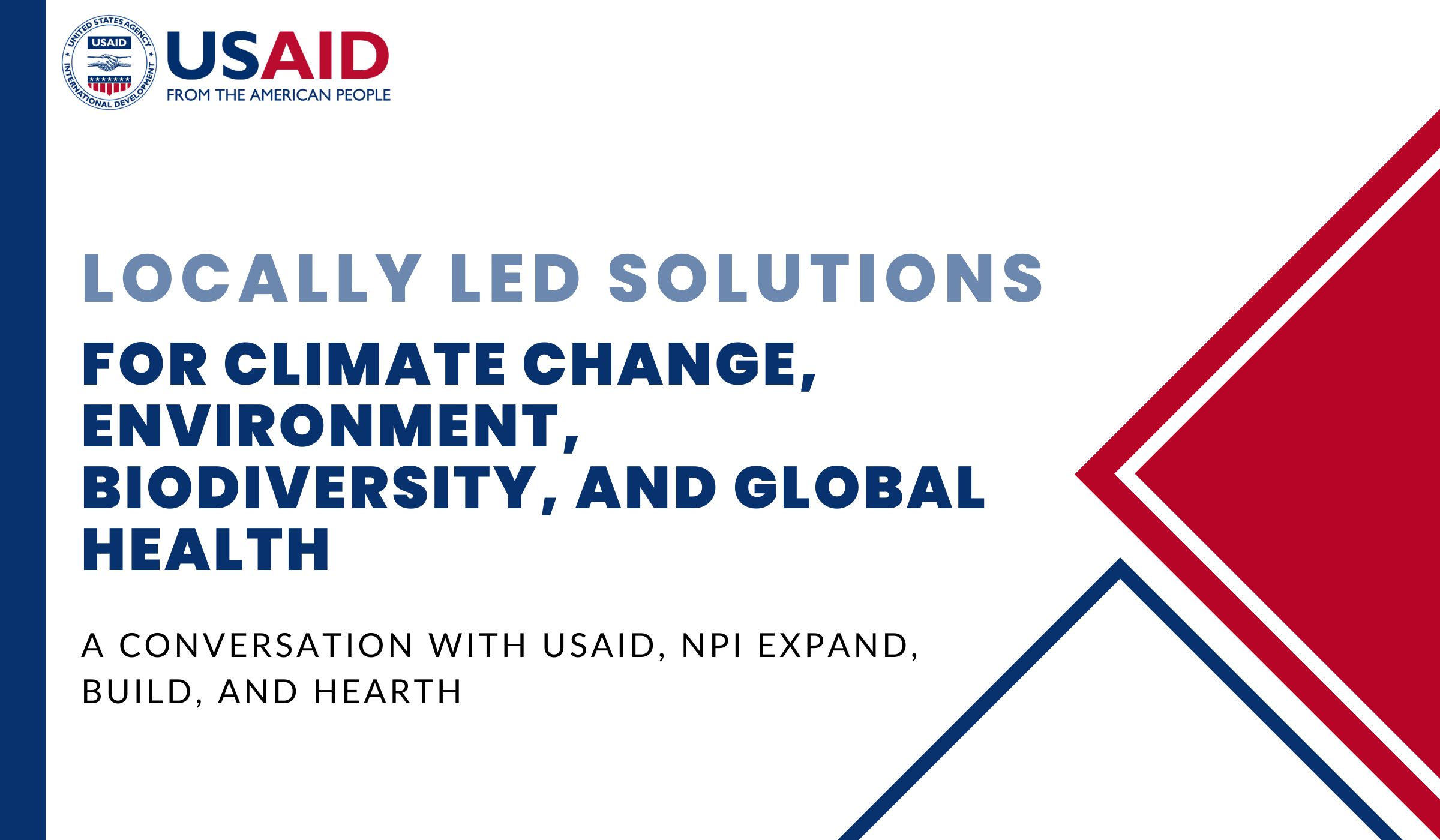Side Meetings
SMB211
Locally Led Solutions for Climate Change, Environment, Biodiversity, and Global Health
25
Jan
- Ariella Camera, USAID
- Elizabeth Lugten, USAID

This session will highlight locally led solutions for addressing the complex nexus of climate and health and the role of local organizations in this space. The panel/roundtable will be a discussion showcasing various models of engaging local actors/leaders and will highlight what is needed to drive action at the local level through civil society, private sector, and government actors etc. Also various models/approaches for capacity strengthening will be discussed.
Country Examples include:
NPI EXPAND Kenya- USAID’s New Partnership Initiative (NPI) Expanding Health Partnerships (EXPAND) project is enhancing the capacity of local partners to increase demand for and delivery of high quality maternal and family planning services to the underserved populations in Narok County - Kenya, while ensuring sustainability of the environment in which they depend on. The integrated approach of supporting community health as well as biodiversity related interventions will contribute to improved health and biodiversity conservation outcomes in the Mara ecosystem driven by local partners including Community Health Partners and Anglican Development Services.
BUILD- USAID’s Building Capacity for Integrated Family Planning & Reproductive Health and Population, Environment and Development Action (BUILD) project is leveraging the interconnectedness of Population, Environment, and Development to spur strong political commitment, sustained financial resources, and accountability for voluntary family planning and reproductive health in low-and middle-income countries. In Kenya and Malawi, through this project both Government and Youth and Women Led Organizations are leading integrated programming at the local level.
HEARTH- USAID’s Health, Ecosystems and Agriculture for Resilient, Thriving Societies (HEARTH) project, consisting of co-created public-private partnerships for cross-sectoral development solutions that advance sustainable conservation of threatened landscapes and the well-being and prosperity of communities who depend on them. Through 2 HEARTH partnerships – The Gorilla Coffee Alliance in Democratic Republic Congo and the RESTORE Alliance in Ghana and Cote d’Ivoire – Olam Food Ingredients, a private sector agri-business partner, is providing technical assistance to smallholder farmers to improve incomes and sustainability while bringing their products to the global market. In the Democratic Republic of Congo the Gorilla Coffee Alliance is supporting regenerative coffee production in the buffer zone of Kahuzi-Biega National Park, with conservation enterprises and community health. In Ghana and Cote d’Ivoire, the RESTORE Alliance is helping 15,000 smallholder cocoa farmers use more climate-smart agricultural practices, of which at least 25% will be women, and reducing pressure on the local forest known to harbor Ebola.
In this side session speakers and participants will:
-
Learn about integrated health and environment examples
-
Discuss capacity strengthening needs/approaches
-
Discuss gaps and opportunities of local stakeholders in the nexus of health and climate
-
Discuss effective engagement with local actors/stakeholders

